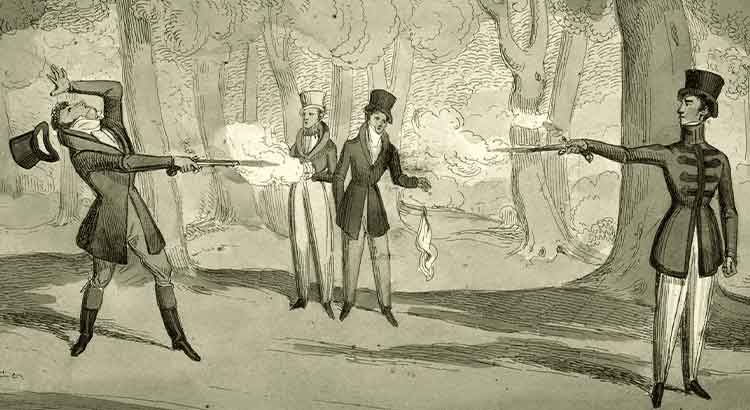One of the most detestable side effects of a democratic society is the establishment of the veiled judgment that if the many are against one, the many are right. There is no more efficient process for a factory of cowards! From the moment a child is taught that to assert his opinion or will over that of another, it is enough to convince a third party to support it, he learns to operate cowardice—knowing its practical advantages over honor, an essentially individual virtue. If we think of whole generations brought up in this way, that’s the end!
Tag: behavior
The History of Great Men Who Stood Out From the Crowd
It has been said—by Carlyle?—that the history of mankind is the history of great men who have risen from the null crowd that composes it. From this, the modern tragedy: the democratic social structure simply restrains the rise of great men, putting in their place abject demagogues, slaves to the popular will. To rise and achieve recognition, a modern man must become a spokesman for the stupid majority, setting aside his individuality to become a circus entertainer, a crowd-shaker. It is precisely the distinguished who cannot rise, this possibility being exclusive to those who resemble as many individuals as possible. The failure!
Nostalgia of the Dueling Days
Today, an imbecile feels his vanity scratched and, in revenge, sneaks in to harm another by waging a hate campaign against him—that is, by inciting others to hate him; by rallying a cowardly majority. A few centuries ago, the offended, the truly offended, could resort to defiance, refining it if he left the choice of weapon up to the challenged. If the offended refused, he assumed to be a coward, and the honor of the offended was automatically redeemed. The duel was an instrument that put offenders in a very bad situation: the offended had only to win. If he lost the duel, he emerged as a brave man; if he won, he had his moral damage repaid. How everything has changed! In this age of cowards, dueling on equal terms has become literature: there is no one who challenges, and no one that has the courage to accept a challenge. In those days, when the possibility of a duel was evident, people respected each other more.
Society Has Become Radically More Cynical
With the democratization of the West, the advent of the press, and especially marketing, society has become radically more cynical and its means of oppression even more perverse. The State has become stronger than ever and has expanded its methods of social control, assuming the position of God and waging war against the manifestation of the individual, reducing him to nothing and taxing him as a criminal if he opposes its tyrannical and immoral impositions. Censorship has become prior, condemnation veiled, defense mechanisms have been annulled by mass psychology—all this operated by an authority based on a false and hypocritical foundation that only grows. Cynicism and lies have never been used so effectively as instruments of domination and power.



